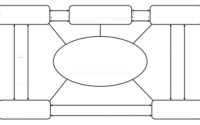
Fractal: an educational model for the convergence of formal and non-formal education
For the last two decades, different authors have mentioned the need to have new pedagogies that respond better to current times, which are surrounded by a complex set of issues such as mobility, interculturality, curricular flexibility, accreditation and academic coverage. Fractal is an educational model proposal for online learning that is formed by four basic […]















